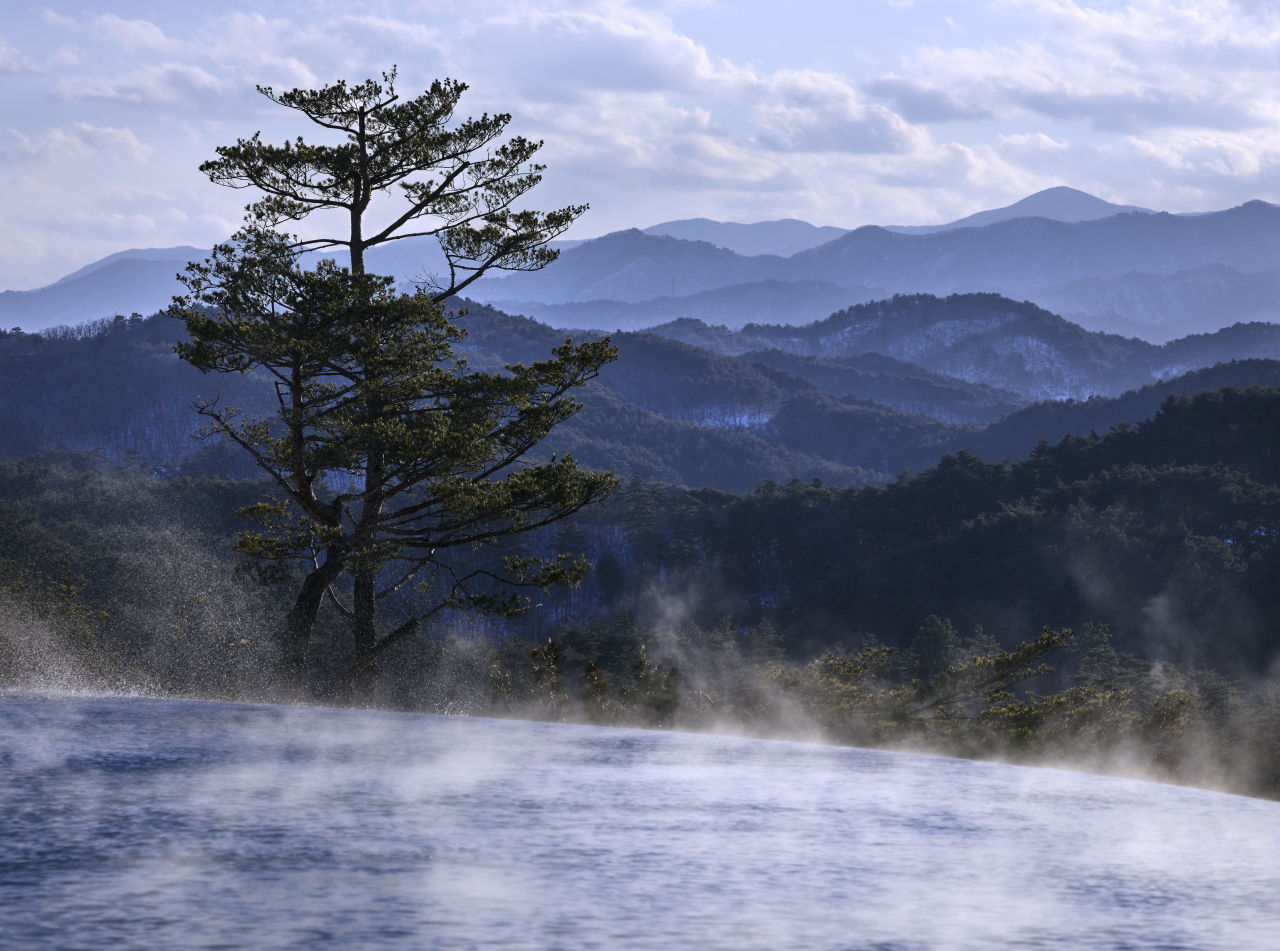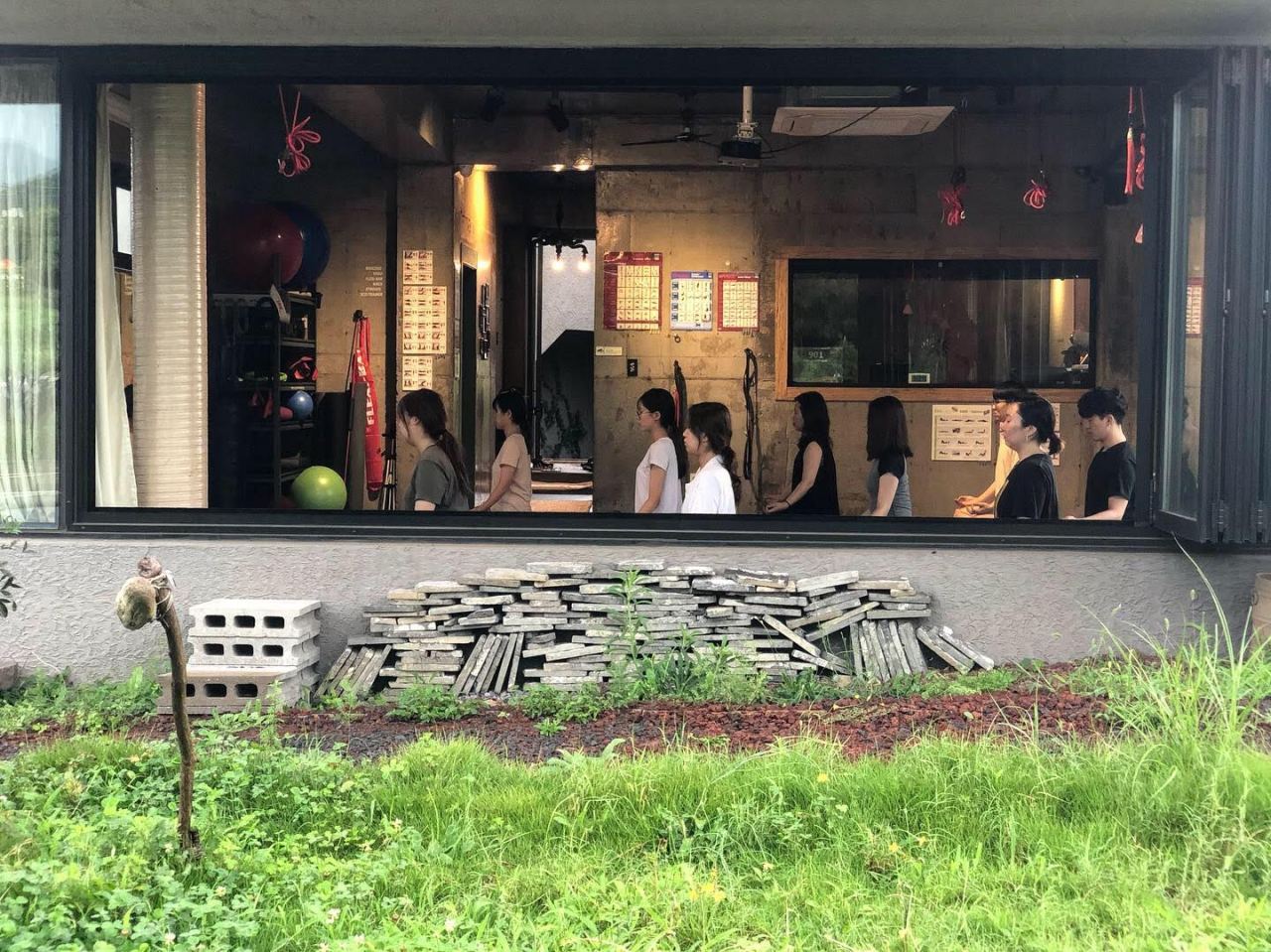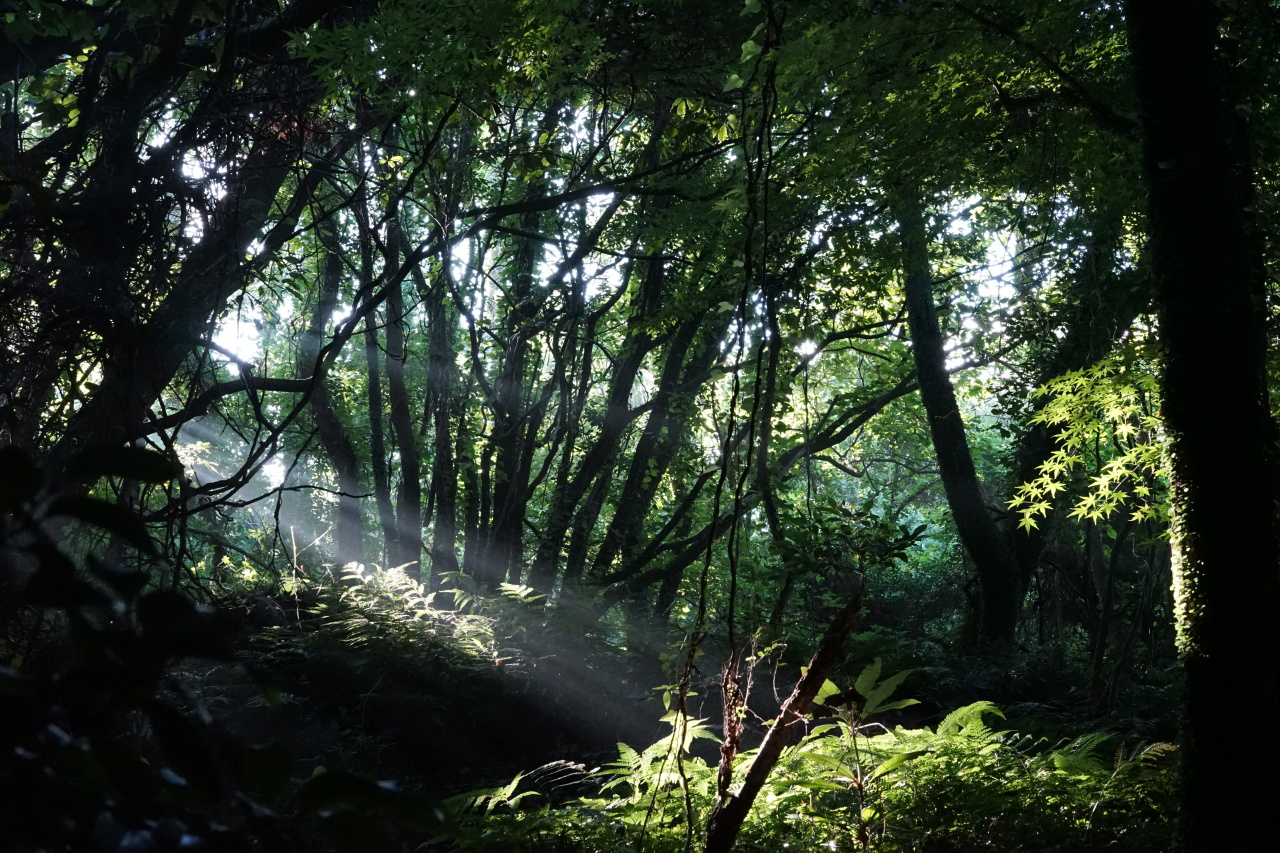
A View from Seolhaeone Resort‘s infinity pool in Yangyang, Gangwon Province (KTO)
Although the pandemic brought the tourism industry worldwide to a virtual standstill starting in 2020, the years 2015 to 2017 saw the global wellness industry’s average growth rate reach 6.4 percent, according to the Global Wellness Institute in 2018. That was almost double the global economic growth rate during the same period.
In 2020, the global wellness tourism market was estimated at 908 trillion won ($735.8 billion), according to the GWI’s Wellness Tourism-Global Market Trajectory and Analytics report, published in April 2021. This is a 15 percent increase from some 790 trillion won recorded in 2017.
The report also forecasts the wellness tourism market to reach 1,479 trillion won by 2027.
“So-called ‘retreat centers’ are freshly gaining popularity in Korea after the pandemic,” Choi Hee-jeong, professor at Cha University’s Graduate School of Integrative Medicine, told The Korea Herald.

Jeju 901, a brunch cafe and guest house, offers regular yoga sessions in Jeju City, Jeju Island. (KTO)
“The concept does not rely solely on a single program, but a complex wellness experience that, for example, combines yoga, a vegan diet, meditation and other practices together to better suit each guest’s condition,” Choi said. “The Jeju 901, which is on this year’s list, could be one such place,” she added, referring to a list of nine wellness tourism destinations selected this year by the Korea Tourism Organization.
The wellness tourism recommendation project, which was initiated in 2017, reflects travelers’ growing demand for tourism that links to themes of enhancing physical, mental, and emotional health.
This year’s list consists of 59 locations recommended for wellness tourism.
The selected sites fall under one of four main categories: beauty and spas, nature and forest, healing and meditation as well as Asian medicine.
The beauty and spa category includes beauty therapy programs and facilities such as hot springs. This year, the East Coast Energy Hot Springs Convention Hotel in Donghae, Gangwon Province, Seolhaeone Resort in Yangyang, Gangwon Province, and S2 Beau Tech Lounge in Daegu were chosen.

Jeju Hwansang Forest Gotjawal Park, a farm-turned-forest park located on Jeju Island (KTO)
In the nature and forest category are Geochang Hangnohwa Healing Land, an anti-aging wellness center located in Geochang County, South Gyeongsang Province, and Jeju’s Hwansang Forest Gotjawal Park. Both locations, surrounded by nature, have the potential to promote the physical and mental health of visitors, according to the KTO.
Added to the Asian medicine category list is Lee Moon Won Medical Clinic, located in Seoul’s Cheongdam-dong. The clinic offers not only Asian medicine treatments, but also operates scalp immune enhancement programs and aroma massage therapy services.
Mayfield Hotel in western Seoul, Taekwondowon in Muju, North Jeolla Province, and Jeju 901, a brunch cafe and guest house with yoga programs in Jeju City, Jeju Island, are listed in the healing and meditation category.
By Kim Hae-yeon (
hykim@heraldcorp.com)








